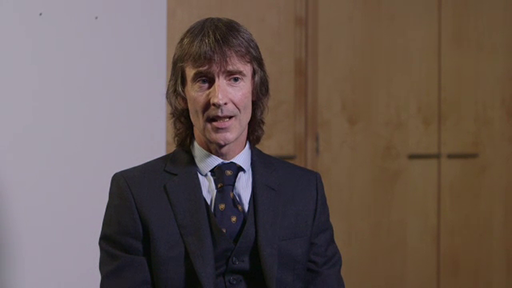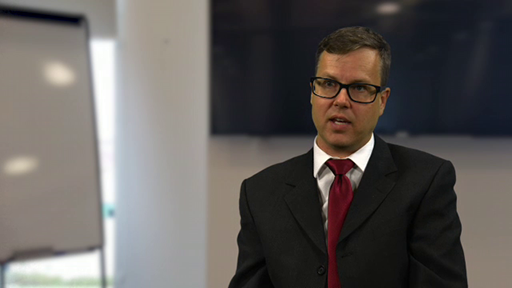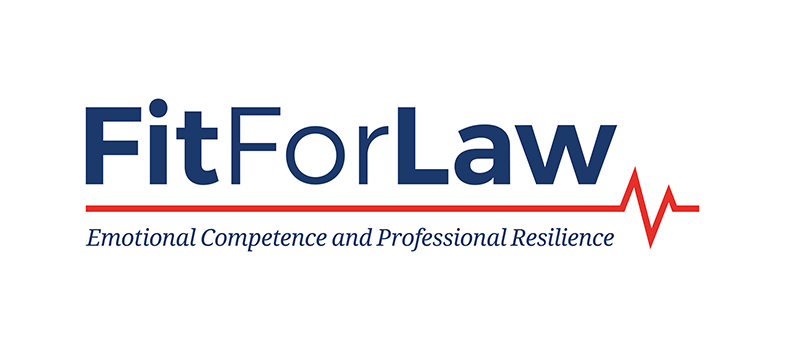3.2 Dealing with mistakes
This section includes:
- Explanatory text
- “Adopting a growth mindset” examples
- 2 videos.
You should allow yourself 20 minutes to complete this section.
"…because you do dwell on stuff, you take stuff with you and you think oh I’m so stupid, my supervisor is going to think I’m an idiot'."
"I’m very much reminded of the first time that I thought I’d made a horrendous mistake many years ago and I went through to the then senior partner and said I’ve made a terrible mistake. What have you done? So I told him and he said show me the file... no you haven’t!' And I found that very comforting..."
For many legal practitioners, a mistake is seen as a type of failure. The sense of letting yourself and/or others down can be difficult to handle. There may also be worries over the practical impact of your mistake (including, in some cases, the potential for disciplinary proceedings and/or negligence claims). This video demonstrates how a number of individual legal professionals' handle mistakes and difficulties.
Coping with mistakes and difficulties

Transcript
The simple reality is that everyone is going to make a mistake every now and then, what is key is how you deal with the situation, and also what you learn from it. This blog post from The Law Society of England and Wales [Tip: hold Ctrl and click a link to open it in a new tab. (Hide tip)] gives useful advice which can be applied to most legal professionals
There may be some sectors of the profession, for example, if you are self-employed, a sole practitioner or a member of the judiciary, where you have limited support from others. If this is the case, you do need to think about whether you can identify anyone to act as a form of (formal or informal) mentor to assist when such issues arise or consider obtaining guidance from your regulatory or professional body perhaps.
In terms of emotional competence, it is important to think about how you regulate your emotional responses to avoid being overwhelmed by negative feelings. Instead of (or after!) panicking, take some time to calm yourself down, process your emotional responses and then focus on how to tackle the issue to develop a solution-oriented approach. Often taking some time to calm down allows you to think about situations more clearly and to identify the correct way of dealing with issues that have arisen. This is likely to involve apologising, speaking to others involved and trying to identify a solution. This video of Senior Lecturer in Mental Health, Dr Mathijs Lucassen, gives some practical tips on handling these issues.
Dealing with your emotional responses

Transcript
In terms of professional resilience, the concept of a “growth mindset” can be valuable in this situation. Dweck (2017) argues there are two forms of mindset (ways of thinking about yourself). The first is a “fixed mindset” which assumes that you have a fixed intelligence, personality and character which you simply have to accept and live with. This leads individuals to constantly to seek to prove themselves – to demonstrate that they are smart, funny, loyal and so on. They may avoid challenges or chose not to put in effort (“what’s the point if things cannot change?”).
The alternative is to adopt a “growth mindset” and view these things as works in progress that can be developed and cultivated through your efforts and the support of others. Dweck argues that “… everyone can change and grow through application and experience” (2017, p. 4). This leads to individuals embracing challenge and putting in effort to improve themselves. This is only a very brief introduction to the theory (and in some situations feeling you have to constantly strive to improve yourself could be very unhealthy). However, the idea of a “growth mindset” can help when tackling mistakes or, as demonstrated by the following video, when managing rejection.
Managing rejection

Transcript
Adopting a growth mindset

Scenario 1
It’s Monday morning and you are about to go to court…
You think – “This will be stressful, but I’ve done my prep”.
You do – Walk into court right on time outwardly appearing very calm.
You feel – Nervous, but also a bit excited (because of the challenge ahead).
Versus
You think – “I’ve been preparing all weekend, but I can’t cope with this, it’s too much for me”.
You do – Get a coffee and wait in the cold some distance away from court.
You feel – Increasingly panicky and down.

Scenario 2
It’s 4pm on Wednesday afternoon and a senior employee asks you to review four boxes of papers for 9am on Thursday…
You think – “I must show I can do this, I don’t want to look like I’m not committed.”
You do – Work until 1.30am and come back into work for 7.30am to finish off.
You feel – Tired and worried that you’ve missed something.
Versus
You think – “I know I can do this, but I need the time to do it properly”.
You do – Speak to the senior employee and negotiate a revised timescale for lunchtime on Thursday, leave the office at 7pm and come back at 8.30am.
You feel – Confident and better rested.
In each of these two scenarios, a fixed and growth mindset approach to the same problem has been outlined. You can see that the fixed mindset response may be about covering up perceived personal flaws or weaknesses and protecting yourself from shame and failure. This is based on the mistaken belief that you cannot improve or grow from the challenge.
The same scenario can give rise to a more productive growth mindset approach in which the stress or challenge can be handled and individuals may develop or grow as a result. The alternative growth mindset response also demonstrates a “reframing” of the problem. This is a powerful technique where we think differently about a problem and engage with it instead of allowing it to block our way.
3.1 Communicating about difficult issues
